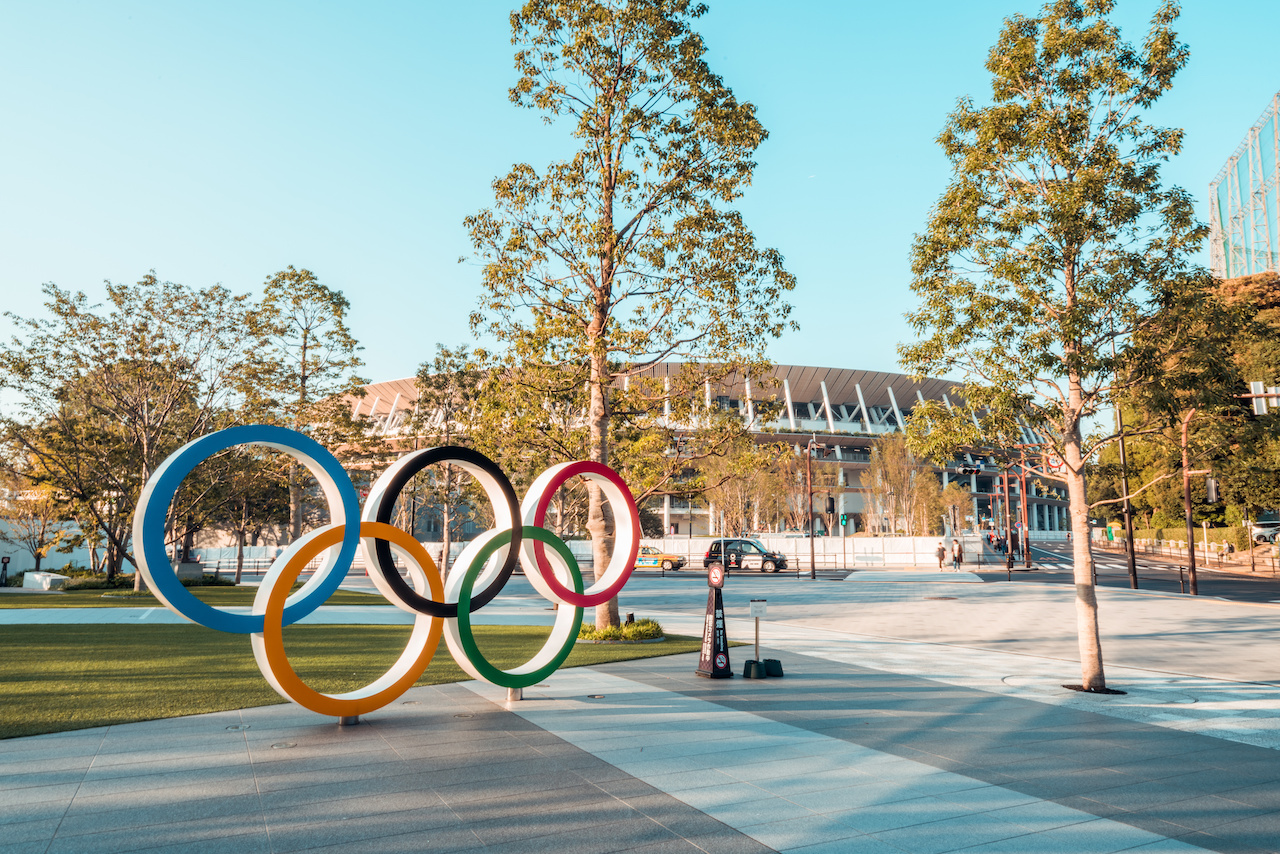When the Tokyo Olympics were postponed in March 2020 as the COVID-19 pandemic grew to alarming proportions, there was a feeling that putting off the opening ceremonies until July 2021 would be the answer to a dire situation. Few dreamed that there would still be major COVID problems 14 months later, let alone a question as to whether the Games should be held even in 2021.

In May 2021, a 350,000-siganture petition calling for Olympic cancellation was submitted to organizers, as the Japanese government extended the COVID state of emergency until at least the end of that month and a poll showed 60 percent of the Japanese public wanted the Games called off. Only 3 percent of Japanese citizens had been vaccinated by mid-May and the head of online retailer Rakuten, Hiroshi Mikitani, believed holding the Games would be “a suicide mission.” Despite that, International Olympic Committee (IOC) Vice President John Coates of Australia, head of the IOC Coordination Commission for Tokyo 2020, insisted the Olympics “absolutely is going ahead.”
He believes that public hesitancy over the Games stems from the slow pace of vaccine inoculation in Japan, but contends, “as the vaccine is rolled out … I think that will improve.”
Tokyo and nine other areas in Japan are under emergency restrictions, but when he was asked whether the Games could be held if the state of emergency isn’t lifted, Coates did not hesitate to respond.
“All of the plans that we have in place to protect the safety and security of athletes and the people of Japan are based around the worst possible circumstances, so the answer is absolutely, yes,” he said.
Coates referenced the successful staging of recent test events during the state of emergency measures as evidence the Games could take place should restrictions be in place while the event is held.
The U.S. State Department on Monday urged against travel to Japan due to the high level of COVID infections in the country, issuing a “Do Not Travel” Advisory for U.S. citizens. They did not mention the Olympics in the advisory.
As Dr. Michael Ryan of the World Health Organization said, “It is our hope that the Olympics can occur,” pointing out sporting events and leagues have been run very safely over the last six months without spectators, with special bubbles and arrangements for athletes and others. He is confident Tokyo 2020 and the IOC can manage the risks, as well as the final decision on the attendance of spectators.
A ruling on whether fans can be in the stands was not scheduled to be made until June, when the situation becomes clearer, although it is possible they may just be held behind closed doors. Spectators from outside Japan were already excluded in March.
Athletes and all those with close proximity to competitors will be tested daily, and everyone at the Games will be required to take two COVID-19 tests within 96 hours before they fly to Japan. Visits to restaurants and bars have been banned, while athletes have been told to arrive no earlier than five days before their event and depart no later than two days after to limit the number of people at the Athletes’ Village. The IOC has warned those who breach the rules could lose accreditation, and the regulations will be in place even for those who have been vaccinated.
And, what if, after all this, the Games don’t happen?
“In our sport, we’re always used to having to change plans,” said USEF Director of Sport Will Connell, citing the fact that horses can get sidelined by injury or mishaps.
With the Olympics moved ahead a year, the timeline leading to other major competitions has now been compressed. Normally, there’s a break year without major championships for U.S. riders after the Olympics, but in 2022, many of the same riders who are going to Tokyo will be heading to Denmark for the world championships in jumping, dressage and para-dressage, while the eventers will go to Italy for their title meet.
“People need to remember that as we come out of the Games in August/September, we’re less than a year from the world championships and the first opportunity to qualify for Paris [the 2024 Olympics],” Connell said.
“If the worst happens and the Games are cancelled, we’ll immediately look at what the options are. You’ve got, for example, Barcelona [the FEI Longines Nations Cup final] for jumping; Aachen and the new five-star event in Maryland.”
As of mid-May, however, he said, “We have not put in place any formal discussions around that. Let’s not forget there are four horses that go in each discipline in the Olympics and one of those [in each discipline] is traveling reserve. So there are still a ton of horses and riders that we are supporting that won’t end up going to the Games that have to have a competition program. There’s a lot on the horizon other than the Olympic and Paralympic Games.”
There’s a lot to consider with the whole scenario. For instance, what if the Games are cancelled while horses are in quarantine in Germany?
“This is all possible and I think everybody’s aware of it and we’ll make the best of it,” said U.S. Dressage Technical Advisor Debbie McDonald.
“If that does happen, if there are any shows, we might hit them. If not, we’ll take the horses home and go back for Aachen in September. You have to keep thinking ahead, ahead, ahead. Because next year with the world championships, that’s going to be huge for us. We’ve got to do well there, too.”

